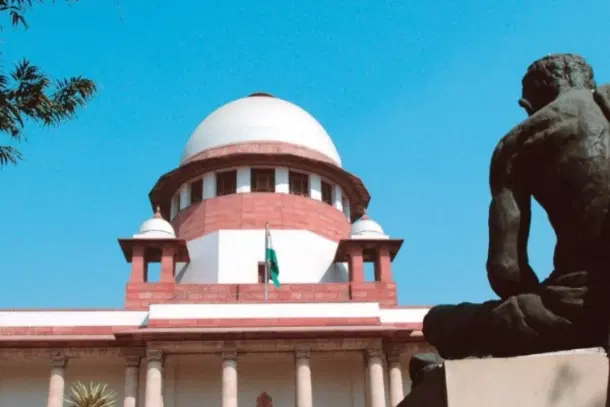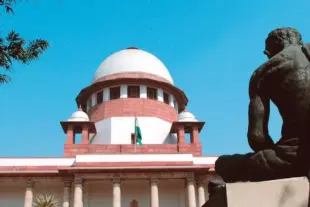News Brief
Supreme Court Delivers Split Verdict In Bastar Burial Case, Orders Pastor's Body To Be Buried In Christian Graveyard In Chhattisgarh
Arjun Brij
Jan 27, 2025, 02:03 PM | Updated 02:02 PM IST
Save & read from anywhere!
Bookmark stories for easy access on any device or the Swarajya app.


The Supreme Court of India delivered a split verdict today (27 January) in the contentious case concerning the burial of Subhash Baghel, a Christian pastor from Bastar, Chhattisgarh.
However, the court refrained from referring the matter to a larger bench, citing the prolonged period the body has been kept in the morgue since 7 January, reported NDTV.
The court directed that Baghel’s body be buried at a Christian graveyard located 20 km from his village in Karakwal. The state administration was instructed to provide full logistical support for the burial.
The case was brought before the Supreme Court by Baghel’s son, Ramesh, after neighbours objected to the burial in the village graveyard due to the family’s conversion to Christianity.
The Chhattisgarh High Court had earlier expressed concerns over a potential law and order situation if the burial took place in the village.
Ramesh Baghel’s lawyer, Colin Gonsalves, argued that the family had a right to bury Baghel in the village, as other family members had been buried there despite their conversion.
"I don't want to go outside the village... I don't want to be treated like an untouchable just because I converted," he said. However, Solicitor General Tushar Mehta opposed this, warning that such actions could ignite tensions between tribal Hindus and Christians.
Justice B V Nagarathna, delivering her judgment, criticised the discriminatory practices of the village panchayat and state authorities. “It is said that death is a great leveller, and we need to remind ourselves of this,” she remarked.
Justice Nagarathna condemned the affidavit by Bastar police, which stated that Christian converts could not be buried in the village, calling it a violation of Articles 14 and 21 of the Constitution.
Justice Satish Chandra Sharma dissented on this view. "There is no reason why there should be an unqualified right to burial. Sweeping and illusionary rights can lead to public order disruption. Maintenance of public order is in the larger interest of society," he reasoned.
He maintained that the burial at Karakwal, 20 km away, was a practical resolution.
The court, invoking Article 142, ordered the burial at Karakwal with immediate support for the family, concluding, “These directions are issued to allay the sufferings of the family of the deceased.”
Arjun Brij is an Editorial Associate at Swarajya. He tweets at @arjun_brij





